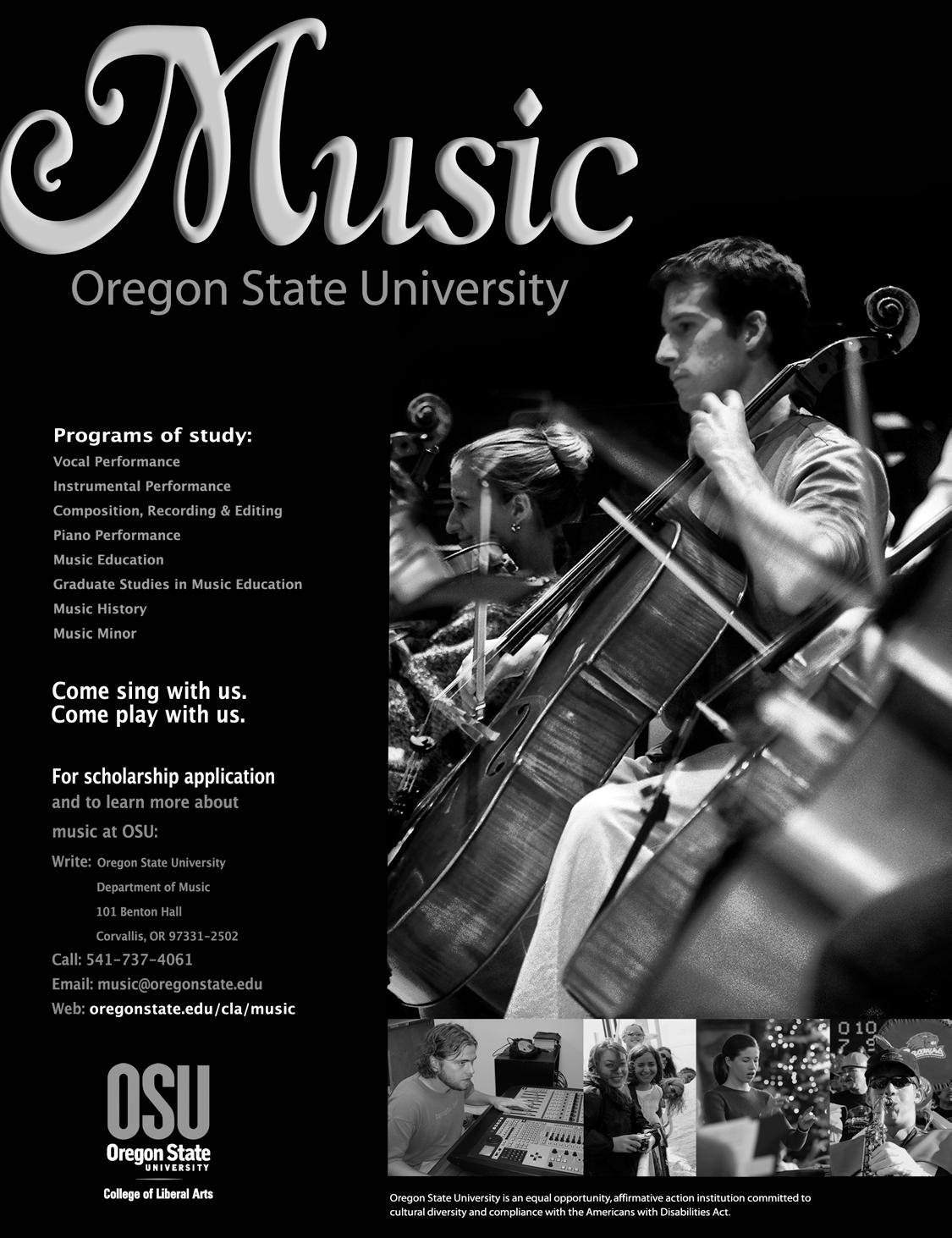
2 minute read
theimportanceofspirit: AHereticalProposal?
we spend a lot of time focusing on teaching techniques, always searching for tricks of the trade, new pedagogy, and fresh ideas. As a teacher of future teachers, this is an important part of what we teach everyday. To be successful, young teachers need a tool chest of powerful techniques to affect change in the classroom. Even master teachers must constantly hone their skills in order to continue to grow and be effective teachers.
This thought process reminds me of a favorite quote by Nadia Boulanger, the famed French composition teacher: “Without joy, everything is zero.” This quote has fascinated me for years. If anyone understood the importance of technique, surely this would be Boulanger, the great teacher of the 20 th Century’s best American composers.
Advertisement
I would like to suggest that, too often, we place too much emphasis on technique and discount the importance of energy. Indeed, the value of spirit, in my opinion, cannot be understated. While it does not replace knowledge of subject matter and a grasp of pedagogy, it is perhaps the key to making those tools work successfully. It is the connective tissue that allows the rest of the body to function. Certainly, all of us have known teachers who were deep in understanding and rich in musical skill but failed because they were cold and soulless in their relationships with both the students and the music. Perhaps there is something more than the simple equation of sequential steps in teaching, perhaps an additional component that brings humanness to our work. I believe that Boulanger was speaking about this joy and its absolute vitality in the process of learning and growing.
Maybe you remember what it feels like—that feeling of excitement when students walk into the room, or the feeling in the morning when you leap out of bed, or the anticipation you feel as a concert approaches, or the delight experienced when a light blinks on in a student’s mind. What if this feeling were not the reward but rather the fuel that makes great teaching possible?
Joy is not inexhaustible, with an unlimited supply at our disposal. Indeed, joy is not in the effort; although, certainly giving of one’s self generously is an important part of the process. There is nothing perhaps more pathetic than when we flail away, giving our all, but lack the inner energy, or joy, to support our efforts. The energy that comes from joy gives us creativity, inventiveness, and tenacity. Rather than replacing technique, it assists us in discovering new and fresh pedagogical ideas. Joy reminds us to focus on the process of teaching and avoid the trap of the ends justifying the means, which is particularly dangerous for secondary teachers, who can be tempted to base teaching goals on attaining success at competitions. It prompts us to focus our efforts on teaching students, rather than on trying to grind out good music. Joy helps us remain humble and reminds us to laugh at ourselves.
If joy is the magic ingredient, it certainly is not free. Attending to the needs of who you are is of vital importance. This is where reading, friendships, family, listening, and being quiet can make all the difference, not only in a successful professional life, but, more importantly, in your personal life. We all know what it feels like to have nothing left in the tank. For a time, the extra effort will fool most of your students. But, eventually, the only way to refill the tank is to stop for gas. Such time is not wasted but rather is time well spent for all involved. For me, being with friends and colleagues at conferences, attending concerts and clinics, has been an important part of staying vital. Christopher Silva, the OMEA 2008 Conference chair, along with his conference planning team, have spent hundreds of hours preparing an in-service that will give you just the boost you need in your work.
I look forward to seeing each of you this January in Eugene for our annual boost of energy, a boost that is critical to our ability to sustain that feeling of true joy that comes from knowing we are doing what we love to do.










